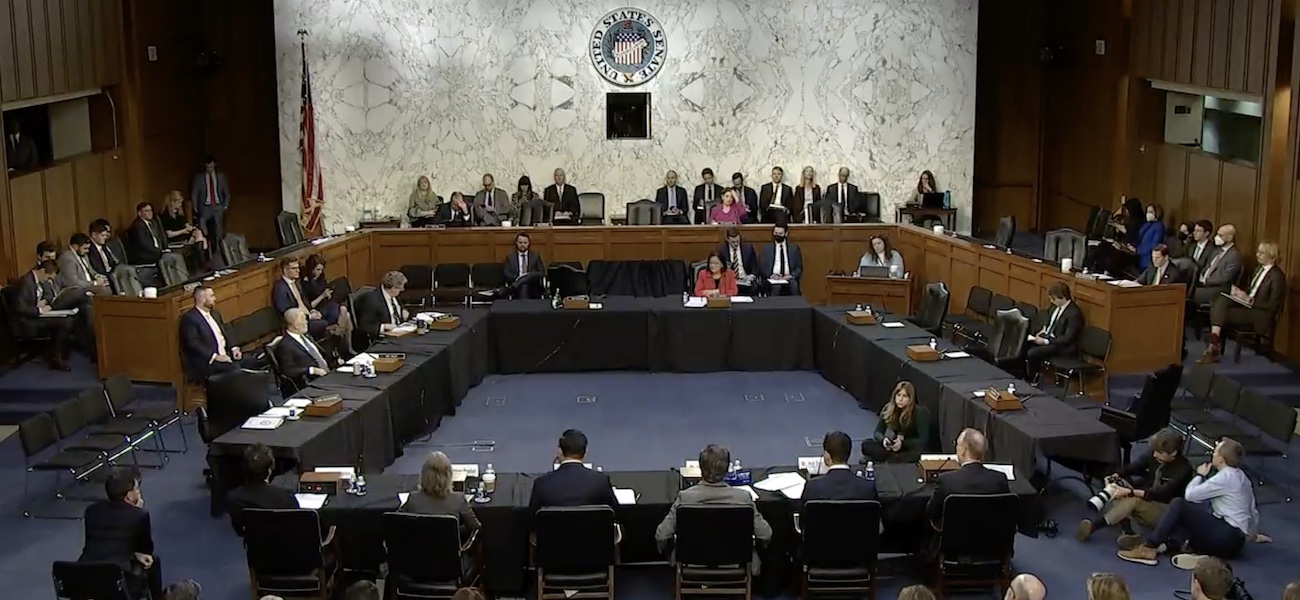[ad_1]
Live Nation Entertainment president and chief financial officer Joe Berchtold was backed into a corner by sharp criticism of the concert promoter and its subsidiary Ticketmaster from all quarters during a Senate Judiciary Committee hearing in Washington, DC yesterday.
Lawmakers and representatives of a rival operator, promoter, think tank and band lined up to pillory the combined company’s impact on the sector during the hearing, which was held to debate ‘promoting competition and protecting consumers in live entertainment’.
Leading the charge was Jack Groetzinger, chief executive of SeatGeek, who said: “I’ve spent the last 13 years working in this industry and there are three things that are clear to me and are clear to many others that work in entertainment.
“Number one, a robust lack of competition in our industry meaningfully stunts innovation and consumers suffer. Number two, venues fear losing Live Nation concerts if they don’t use Ticketmaster. And number three, the only way to restore competition in this industry is to break up Ticketmaster and Live Nation.”
Whilst such a viewpoint could perhaps have been expected of another ticketing operator, the hostile tone of the questioning from Democrats and Republicans left the very real possibility of future regulatory and legislative headwinds hanging in the air.
Legislative headwinds?
Since its merger with Ticketmaster, Live Nation has been operating under a ‘consent decree’ comprising certain restrictions, imposed as part of a settlement with the US Justice Department and then extended in 2019 for five-and-a-half years.
If the Justice Department decides that the consent decree has been contravened, Senator Richard Blumenthal said that “unwinding the merger ought to be on the table”, before he added to Berchtold: “You are the ones ultimately responsible for the astronomically rising prices, the exorbitant hidden fees, the sold-out shows and the bots and scalpers.”
A defiant Berchtold had earlier claimed that only 5% of all shows sell-out at on-sale, while only 20% of shows sell out at all, whilst adding in his opening remarks that Live Nation had invested more than $1bn (£800m/€900m) in Ticketmaster since the merger.
“Ticketmaster comes under a lot of criticism, but I can say with great confidence that technologically Ticketmaster is a much better ticketing system today than it was in 2010,” he added.
“Its performance in large on-sales is the best in the industry, it has the best marketing capabilities of any ticketing system and it is far and away the leader in preventing fraud and getting tickets into the hands of real fans.”
However, that did little to appease the lawmakers or soften the verbal onslaught from fellow contributors at the hearing.
Stifled competition?
Kathleen Bradish, vice-president for legal advocacy at the American Antitrust Institute, and singer-songwriter Clyde Lawrence of the band Lawrence both claimed that competition had been stifled due to the dominance of the market leader.
Concert promoter Jerry Mickelson, president and CEO of JAM Productions, noted that in 2009, he appeared in front of the committee to appeal against the merger of Live Nation and Ticketmaster.
He said: “I testified, that if this merger was allowed to proceed, the combined entity would have the ability to suppress or eliminate competition in many segments of the industry. Today we know with certainty that this merger is vertical integration on steroids: Using dominance in one market to expand its power and dominance in another, cutting out the competition and harming the consumers.”
Mickelson highlighted that for JAM Productions, arena concerts used to be its most profitable segment of the business.
“In 1996, JAM produced 100 concerts in arenas, but in 2011, one year after the merger, that decreased to 46 concerts and in 2022, we only produced 14 arena concerts,” he said. “Live Nation went after the arena business and they succeeded in driving us and other independent promoters out of that sector.”
Addressing the ‘debacle’
The hearing was led by Senator Richard Durbin, although it was Senator Amy Klobuchar, who chairs the Judiciary Committee’s antitrust subcommittee and is an outspoken critic of the Live Nation-Ticketmaster combination, who steered the hearing for long spells.
In her opening speech, Klobuchar referenced a lyric from Taylor Swift – whose Eras Tour on-sale incident prompted the hearing – and said: “To have a strong capitalist system, you have to have competition. You can’t have too much consolidation.
“Something that unfortunately for our country, as an ode to Taylor Swift, I will say we know all too well.”
Berchtold blamed bots for forcing the company to halt sales of tickets for Taylor Swift’s tour in November.
“We were… hit with three times the amount of bot traffic than we had ever experienced, and for the first time in 400 Verified Fan on-sales, they came after our Verified Fan access code servers,” he added.
“While the bots failed to penetrate our systems or acquire any tickets, the attack required us to slow down and even pause our sales. This is what led to a terrible consumer experience that we deeply regret.”
Berchtold added that the company should have staggered sales to cope with demand, and – perhaps optimistically – managed the expectations of buyers more effectively.
Junior Senator John Kennedy, who described the Taylor Swift episode as a “debacle”, suggested that making tickets non-transferable could be a solution – a stance endorsed by Berchtold but unsurprisingly opposed by the likes of Groetzinger and Bradish.
[ad_2]
Source link


